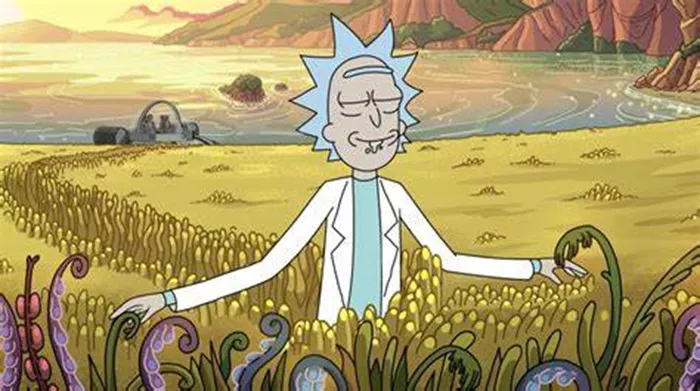Rick Sanchez, the eccentric and often unpredictable genius in the animated series “Rick and Morty,” is known for his adventurous spirit, scientific prowess, and a penchant for mind-altering substances. Throughout the show, viewers witness Rick experiencing various hallucinations, raising questions about their origin, significance, and impact on his character. This article delves into the complexities of Rick’s hallucinations, exploring possible explanations rooted in psychology, narrative context, and the underlying themes of the series.
Contextualizing Rick’s Character
To comprehend Rick’s propensity for hallucinations, one must first examine his character. Rick Sanchez is portrayed as a highly intelligent but deeply troubled individual. His vast knowledge spans dimensions, advanced technology, and the manipulation of reality itself. However, Rick’s brilliance is juxtaposed with profound existential nihilism and emotional turmoil. His reckless behavior and substance abuse suggest a coping mechanism for his existential dread and emotional pain.
Psychological Underpinnings of Hallucinations
Hallucinations in “Rick and Morty” can be interpreted through a psychological lens. Rick’s constant exposure to interdimensional travel, alien encounters, and mind-altering substances creates a fertile ground for perceptual distortions. According to psychological research, hallucinations often stem from a combination of biological, psychological, and environmental factors. For Rick, these factors converge in a universe where the boundaries between reality and illusion are frequently blurred.
Substance Abuse and Altered States
Rick’s hallucinatory experiences are closely tied to his substance abuse. Throughout the series, Rick is shown consuming various substances, including alcohol and alien narcotics. These substances not only serve as tools for exploration and manipulation but also as a means of numbing existential pain. Substance-induced hallucinations in “Rick and Morty” reflect Rick’s attempt to escape or alter his perception of reality, highlighting his internal struggles and the consequences of his choices.
Existential Themes and Reality Manipulation
“Rick and Morty” explores profound existential themes such as the meaning of life, free will, and the nature of existence itself. Rick’s ability to manipulate reality blurs the line between what is real and what is perceived. His hallucinations may symbolize his grappling with these existential questions or his defiance of conventional norms and realities. The narrative purposefully challenges viewers to question the nature of truth and the limitations of human perception.
Dimensional Instability and Multiverse Theory
In the multiverse depicted in “Rick and Morty,” reality is portrayed as inherently unstable and mutable. The existence of countless parallel dimensions allows for infinite possibilities and variations of events. Rick’s hallucinations could be manifestations of dimensional instability or encounters with alternate realities where the laws of physics and perception differ. This interpretation underscores the show’s exploration of reality as subjective and malleable.
See Also: fifth emperor of the sea
Emotional Trauma and Psychological Distress
Beneath Rick’s facade of cynicism and intellectual superiority lies a deeply troubled psyche. The series occasionally hints at Rick’s emotional vulnerabilities and past traumas, including the loss of loved ones and the burden of his own genius. Hallucinations in “Rick and Morty” may symbolize Rick’s unresolved emotional trauma or serve as a reflection of his deteriorating mental state amidst the chaos of his adventures.
Narrative Device and Metaphorical Significance
Hallucinations in “Rick and Morty” also serve as a narrative device to advance plotlines and develop characters. They provide insights into Rick’s mindset, motivations, and relationships with other characters. Moreover, hallucinations often carry metaphorical significance, offering commentary on broader themes such as the nature of power, the consequences of scientific progress, and the ethical implications of Rick’s actions.
Philosophical Reflections on Reality and Perception
The philosophical underpinnings of “Rick and Morty” invite contemplation on reality and perception. Rick’s hallucinations challenge traditional notions of reality by suggesting that perception is subjective and reality is shaped by individual experiences and perspectives. This philosophical exploration is intertwined with the show’s comedic and satirical elements, creating a complex narrative that encourages viewers to question their own understanding of the world.
Conclusion: Deciphering Rick’s Hallucinations
In conclusion, Rick Sanchez’s hallucinations in “Rick and Morty” are multifaceted phenomena that reflect his complex character, psychological struggles, and the thematic depth of the series. Rooted in substance abuse, emotional trauma, existential nihilism, and the narrative’s exploration of reality, Rick’s hallucinations serve as a window into his psyche and a mechanism for storytelling. As viewers continue to unravel the mysteries of Rick’s adventures across dimensions, his hallucinatory experiences remain a poignant reminder of the fragile boundary between perception and reality in the chaotic universe of “Rick and Morty.”


